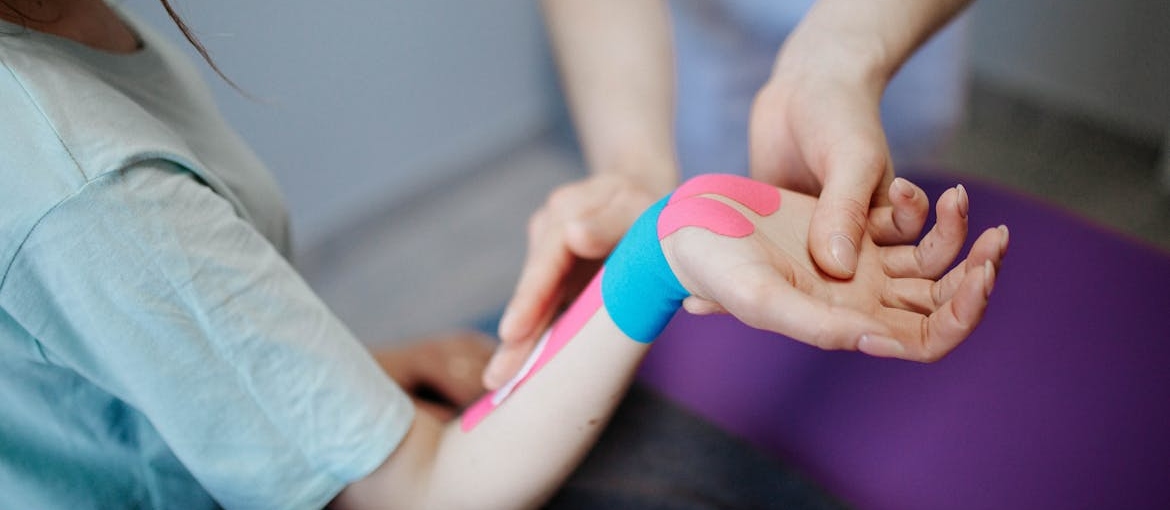Muscle relaxers can bring real relief when your body’s tight, aching, or stuck in pain. But after a while, you might wonder if they’re still helping—or if they’ve become a problem. You’re not alone in asking, are muscle relaxers addictive? The truth isn’t always clear, especially if you’ve been using them for a long time. Some people build a tolerance. Others start feeling like they can’t function without them. If you’re worried about how these medications affect your life, it’s okay to ask for help. A West Virginia treatment center or a trusted provider near you can talk through your options. We will walk you through the facts so you can make safer choices. No pressure—just clear, honest answers for people who want to feel better.
What Are Muscle Relaxers and How Do They Work?
Muscle relaxers help calm tight or spasming muscles. Doctors often use them when someone is recovering from an injury or surgery. These drugs affect the nervous system, not the muscles themselves. They slow down brain activity to reduce pain and stiffness. Some are stronger than others and work for different types of pain.

Older adults may use them after falls or surgeries, which is why places like a rehab for seniors often review them carefully. It’s easy to assume these drugs are safe for long-term use, but that’s not always true. Ask your doctor how they work with your body and what to expect. You may also need help managing pain in safer ways. That’s when talking to a provider can help you avoid long-term problems and feel more in control.
Are Muscle Relaxers Addictive?
This question matters—are muscle relaxers addictive? The answer depends on how you use them and for how long. Some people take them for a few days and stop. Others begin needing more to get the same relief. Then it gets hard to quit. That’s where muscle relaxer addiction can begin. If you’ve searched can you get addicted to muscle relaxers, it’s probably because something already feels off.
At a drug rehab center Marietta OH residents trust, prescription misuse is taken seriously—even with legal medications. These drugs can feel good and help with pain, but that mix creates risk. Dependence doesn’t always start on purpose. For some, it sneaks up. If you’re asking are muscle relaxers addictive, don’t ignore that gut feeling. Talk to someone who knows how to help before things get worse.
Short-Term vs. Long-Term Use of Muscle Relaxers
Muscle relaxers work best when taken for a short time. A few days to a few weeks is usually safe. But long-term use can change how your body responds. It can make quitting harder and lead to other health problems. Here’s a look at what often happens:
Short-term use benefits:
- Fast relief for muscle spasms
- Helps with sleep during recovery
- Reduces tension after injury
- Makes physical therapy easier
- Supports healing after surgery
- Calms the body during flare-ups
- Can replace stronger painkillers short-term
Long-term use risks:
- Tolerance and dependence
- Memory problems or brain fog
- Trouble sleeping without the drug
- Increased risk of falls and injury
- Withdrawal symptoms if stopped suddenly
- Slower thinking and reaction time
- Possible drug interactions with other prescriptions

Common Side Effects of Muscle Relaxers
Muscle relaxers slow your brain and body. That’s why they help with pain—but also why they cause side effects. These may start small but get worse over time. Some people mix them with alcohol or other drugs, which raises the risk. In some cases, the body becomes used to them. This is one reason people seek support through a barbiturates rehab or similar treatment program. Some side effects are easy to miss at first. Others make daily life harder. If you notice these symptoms, speak up. You may need to stop or change your treatment plan. Here’s what to watch for:
- Drowsiness
- Dizziness
- Dry mouth
- Confusion
- Slow reaction time
- Weak muscles
- Headaches
- Upset stomach
- Blurred vision
What to Do If You’re Worried About Muscle Relaxer Addiction
If you’re asking, are muscle relaxers addictive, there’s a reason. Maybe the pills feel too good. Maybe you’re afraid you’ll need more over time. Or maybe you’re noticing side effects you didn’t expect. Many people feel confused about what’s safe and what crosses the line. If any of that sounds like you, you’re not alone. Here’s what you can do when you start feeling unsure, stuck, or worried about what happens next.
When to Talk to a Doctor About Dependence
It’s hard to know when normal use turns into something more. But if you keep asking is a muscle relaxer addictive, that’s a sign to pay attention. Some people notice they can’t go a day without one. Others keep refilling their prescriptions without much pain left. That doesn’t mean you’ve done something wrong. But it does mean it’s time to check in.

Ask your doctor clear questions, like is it bad to take a muscle relaxer every day or why do doctors not like muscle relaxers. If work is affected, you may also wonder, does FMLA cover rehab? That’s a fair question—and yes, it often does. These conversations aren’t always easy, but they can give you peace of mind. Start with your doctor, and then look at your next step. Here some of the signs you should talk to your doctor:
- Using pills without pain
- Needing higher doses
- Hiding your use
- Skipping work or sleep
- Feeling anxious between doses
Detox Options for Muscle Relaxer Withdrawal
Detox doesn’t always mean going away for weeks. But it does mean you need help if you’ve been using muscle relaxers daily and can’t stop without feeling sick or anxious. Symptoms might include headaches, body tremors, or sleep problems. If you’ve been searching muscle relaxers addictive or can you get addicted to muscle relaxers, withdrawal may already be affecting you. In many cases, a supervised setting works best.
You may need medication to ease symptoms or treat other issues that come up. At a stimulants addiction rehab center, they also help with prescription drug use like muscle relaxer addiction. You’ll talk to medical staff and maybe join a group with people facing similar problems. You’ll also explore better ways to handle pain. The goal isn’t to punish you—it’s to help your body reset and give your mind space to heal.
Therapy and Support for Prescription Drug Misuse
Painkillers and muscle relaxers can quickly lead to habits you didn’t expect. Even people who’ve never had a problem with substances before can find themselves stuck. If you’ve asked why do muscle relaxers feel so good, you’ve already noticed the pull. Therapy can help you figure out what’s happening and how to shift your patterns. It’s not just about quitting.
It’s about finding support that works for you. Individual therapy for addiction helps you look at what led to your use and what’s keeping it going. If stress, anxiety, or old injuries are part of the picture, your therapist will help you work through those too. You don’t need to hit rock bottom. The sooner you ask for help, the easier it gets. Are muscle relaxers addictive? For many people, yes. But with the right help, recovery is possible.

Why Do Doctors Limit Muscle Relaxer Prescriptions?
If you’ve ever asked why do doctors not like muscle relaxers, you’re not alone. Many people feel frustrated when they can’t get a refill or are told to stop taking them. But most doctors aren’t trying to make your life harder—they’re trying to prevent long-term harm. Muscle relaxers can cause dependence fast, especially when taken daily. That’s one reason doctors avoid long prescriptions.
If you’ve wondered, is a muscle relaxer addictive, the short answer is: it can be. These medications affect your brain, not just your muscles. Over time, they can slow your thinking, hurt your memory, and affect how you sleep. Doctors also worry about mixing them with other drugs, which raises the chance of overdose. If your doctor pulls back, it’s usually because they want you safe—not stuck.
Safer Alternatives to Muscle Relaxers for Pain Relief
Some people use muscle relaxers short-term and move on. But for others, they become a daily thing. If you’ve ever thought, is it bad to take a muscle relaxer every day, or asked can you get addicted to muscle relaxers, you’re already thinking about your long-term health. The good news? You’ve got other options. There are ways to feel better without relying on pills. These alternatives focus on movement, self-care, and new ways to manage pain.
Physical Therapy and Non-Drug Treatments
Physical therapy can help more than you think. It’s one of the safest ways to reduce pain and improve how your body works. Many people dealing with back, neck, or joint problems find real relief through movement and stretching. If you’re wondering why do doctors not like muscle relaxers, it’s because they don’t fix the root cause. They only mask it.

That’s why physical therapists help you treat the source of your pain, not just the symptoms. You’ll build strength, improve flexibility, and learn safer ways to move. You’ll also learn strategies to prevent prescription drugs abuse, including muscle relaxant addiction. Even one or two sessions a week can make a difference. You don’t need to suffer or stay stuck on meds forever. These programs work—and they help you get your life back without constant pills.
Over-the-Counter Alternatives to Muscle Relaxers
You don’t always need a prescription to treat pain. Many people find relief using non-prescription options that carry fewer risks. NSAIDs like ibuprofen or naproxen can help reduce swelling and pain after injuries. Acetaminophen can be a safer short-term option for muscle soreness. Topical creams with menthol or lidocaine may also ease tightness. Some heat patches help relax muscles and soothe the area for a few hours.
If you’re trying to avoid muscle relaxer addiction, these tools give you better control over what you’re putting into your body. They can be used occasionally or as part of a pain plan. Just because something’s not strong doesn’t mean it’s useless. Every small step helps. Ask your doctor or pharmacist which over-the-counter option fits your needs, especially if you’re dealing with chronic pain or older injuries.

Natural Ways to Relieve Muscle Pain Without Medication
Some people want pain relief without pills. Natural options can support your recovery and help break the cycle of constant medication. You don’t need fancy tools or expensive programs to get started:
- Yoga stretches: Help loosen tight muscles and improve blood flow.
- Hot baths: Reduce tension and ease sore spots after a long day.
- Massage: Boosts circulation and can calm the nervous system.
- Magnesium-rich foods: Support muscle recovery and help reduce cramps.
- Breathing exercises: Lower stress that can make pain feel worse.
Are Muscle Relaxers Addictive? Here’s the Bottom Line
If you’ve been wondering, are muscle relaxers addictive, you probably have a reason. Maybe you’ve noticed changes in how you feel or how often you reach for your medication. That’s worth paying attention to. These drugs can help short-term, but long-term use carries real risks. It’s okay to ask questions. It’s okay to want something safer. You don’t have to figure it all out alone. Talking to a doctor, therapist, or treatment center can help you understand your options. You deserve to feel better without feeling stuck. Whether you’re using muscle relaxers now or thinking about starting them, knowing the risks gives you more control. Ask the hard questions. Look at what’s working—and what’s not. You’re not overreacting. Your health matters, and there’s help if you need it.



